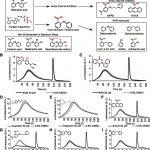ABC Transporter Gene Enhances Chickpea Yield
The development of crop cultivars with increased seed number or seed size and weight (SW) is critical for ensuring global food and nutritional security. Because of the importance of SW, substantial efforts have been directed towards identifying genetic factors regulating this yield-contributing trait. These efforts have uncovered various signaling pathways that function in synchrony to regulate SW. These signaling pathways predominantly function through modulation of cell proliferation and cell expansion during seed development. Chickpea (Cicer arietinum), the genome of which has recently been sequenced, exhibits distinct phenotypic variation for diverse agromorphological traits, including pod and seed yield component traits. Establishing a comprehensive understanding of the complex genetic architecture of SW traits is essential for facilitating future efforts to genetic enhance chickpea. Using a combinatorial genomics-assisted breeding and functional genomics strategy, Basu et al. (10.1104/pp.18.0093) have uncovered an ABCC 3-type ABC transporter gene that regulates SW in two chickpea cultivars. The ABC transporter gene now identified regulates SW by modulating glutathione conjugate transport in the vacuoles of two chickpea cultivars. The superior allele/haplotype of this gene in near-isogenic lines enhances the seed weight, yield, productivity, and multiple desirable plant architecture and seed quality traits without compromising agronomic performance. These findings will facilitate the development of nutritionally enriched high-yielding cultivars in chickpea. Readers interested in the control of SW may also wish to examine the contribution by Shi et al. (10.1104/pp.19.00065) wherein the authors characterize a dominant gain-of-function rice (Oryza sativa) mutant that develops significantly enlarged grains.
signaling pathways predominantly function through modulation of cell proliferation and cell expansion during seed development. Chickpea (Cicer arietinum), the genome of which has recently been sequenced, exhibits distinct phenotypic variation for diverse agromorphological traits, including pod and seed yield component traits. Establishing a comprehensive understanding of the complex genetic architecture of SW traits is essential for facilitating future efforts to genetic enhance chickpea. Using a combinatorial genomics-assisted breeding and functional genomics strategy, Basu et al. (10.1104/pp.18.0093) have uncovered an ABCC 3-type ABC transporter gene that regulates SW in two chickpea cultivars. The ABC transporter gene now identified regulates SW by modulating glutathione conjugate transport in the vacuoles of two chickpea cultivars. The superior allele/haplotype of this gene in near-isogenic lines enhances the seed weight, yield, productivity, and multiple desirable plant architecture and seed quality traits without compromising agronomic performance. These findings will facilitate the development of nutritionally enriched high-yielding cultivars in chickpea. Readers interested in the control of SW may also wish to examine the contribution by Shi et al. (10.1104/pp.19.00065) wherein the authors characterize a dominant gain-of-function rice (Oryza sativa) mutant that develops significantly enlarged grains.



